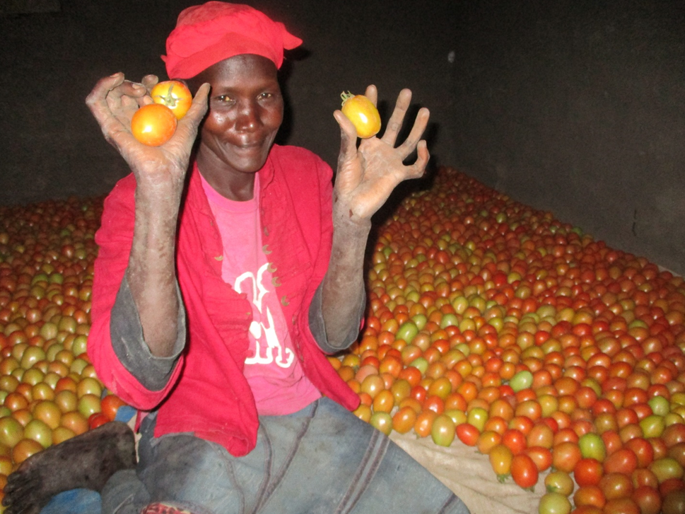
In view of the growing population and advancing climate change in Northern Uganda, the need for irrigated crop production has increased significantly. While irrigated agriculture is still underdeveloped, it can serve to produce crops during the dry season (January to March) and thus generate additional income for small-scale farmers.
Against this backdrop, GOPA AFC promoted irrigated vegetable farming under the GIZ project Promoting Rural Development in Northern Uganda (PRUDEV) between March of 2020 and September of 2023. The capacity development targeted over 1.000 farmers organized in 53 groups and was implemented via 26 community-based trainers, which were trained and coached by GOPA AFC local staff and external experts. Technical assistance focused on organizational development, irrigation technologies, good agricultural practices, market development and the set up and strengthening of inclusive business models. The irrigated production put a special focus on horticulture during the dry season (cabbage, tomatoes, onion, green pepper, eggplant and watermelon), when market prices and marketing opportunities were high. Technologically, our activities supported the dissemination of adapted technologies for small-scale irrigation in order to increase water efficiency and labor saving (e.g. solar water pumps; drip and sprinkler irrigation; water harvesting).
In the context, the Dokolo coffee farmers group became one of the beneficiaries selected for support. The group was composed of eleven members, five of them women. Originally, the group was mainly producing coffee and maize for commercial purposes. However, the individual members within the group were also growing vegetables but on a small scale through traditional farming practices. This was done only during the rainy season, predominantly for home consumption.
Members received practical training on topics such as good agronomic practices, irrigation scheduling and crop water requirement, water resources management, basic economic skills, pest and disease control as well as soil fertility management, among others, with the aim to increase the productivity and thus the income from irrigated vegetable production.
The group decided to focus on the production of tomatoes, using a tomato hybrid variety with good adaptation to warm and humid growing conditions and moderate to strong vigor. To avoid transplanting shocks, the group watered the transplanted seedlings daily for the first two weeks. Also, they mulched their field using maize straws in order to improve retention of humidity. In the beginning, they used watering cans to irrigate, but later changed to using a petrol water pump, which proved to deliver more effective results.
On only 0.08 Hectare, they managed to produce a total population of 4.200 plants, each with an average yield of 90 fruits. The tomatoes were sold at farm gate, small daily markets and weekly auction markets, generating a total net income equivalent to some EUR 1.500. “Despite some post-harvest losses incurred, we were still able to make that much amount of money from a very small piece of land. I wish I knew about this kind of farming earlier”-says Ogwal Tonny Atanga, the group’s Chairperson.
